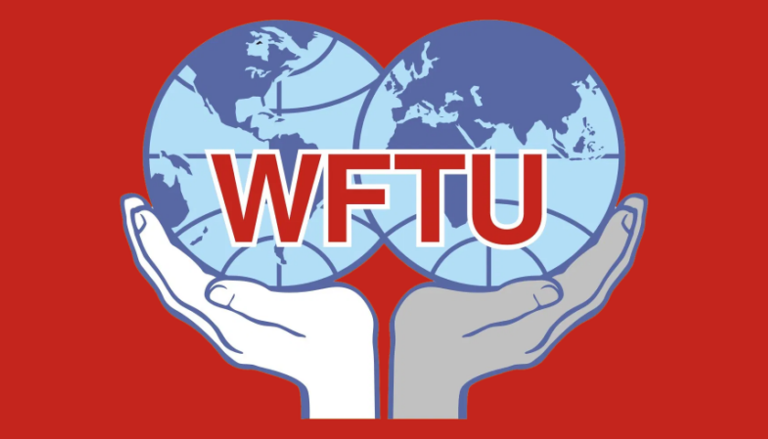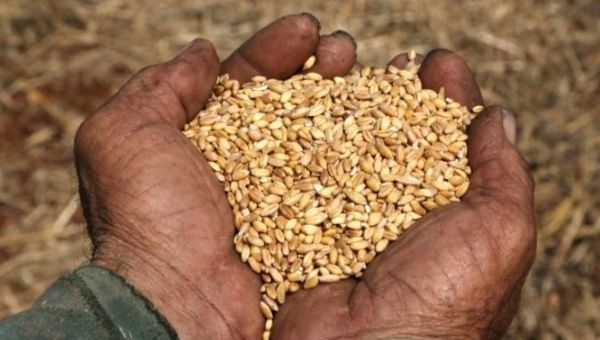
For the WFTU, it is time to turn the page and clearly identify the main culprits responsible for the dramatic consequences of food production that lead to disease and illness.
According to the UN itself there is: ‘an estimated 600 million cases of food-borne illness each year, unsafe food poses a threat to human health and economies. They disproportionately affect vulnerable and marginalised people, particularly women and children, and populations subject to conflict and migration. An estimated 420,000 people around the world die each year from eating contaminated food. Similarly, children under the age of five account for 40 per cent of the morbidity burden due to food-borne diseases, with 125,000 deaths per year.”
These dramatic figures go hand in hand with the growing presence of agro-industry in the agricultural world, the exaggerated exploitation of the land, monoculture, and the massive use of chemicals in agricultural production are the cause of illness and disease among farmers and land workers, and secondarily among consumers, mostly affecting the child population, who are more easily subject to contamination by chemicals.
Declarations of principle aimed at raising public awareness of the need for greater care in the rules of hygiene in the storage and handling of food is misleading if strict measures are not taken to counter the massive use of pesticides, to combat the unhealthiness of intensive livestock farming, often the cause of the spread of animal diseases, and environmental pollution.
Particularly from the countries of the southern hemisphere come numerous reports of the precautionary use of chemicals banned by the same international bodies that are celebrating Food Safety Day today.
For example, in south-east Asia the problem is very serious: in Thailand, according to reports by independent bodies, traces of dangerous pesticides banned from the market have been found in enormous percentages, from 35% to 100% of the samples analysed, in products put on the market. the consumption of contaminated fruit and vegetables can have a very serious impact on the health of children, often in defiance of regulations that impose a maximum limit on residues. Also according to independent surveys, child labour in agriculture accounts for 70% of all child labour with more than 100 million children subjected to very serious health risks.
At greatest risk are workers and consumers in the poorest and least developed countries, where environmental awareness and sensitivity to these issues is also much less developed than elsewhere, hand in hand with the lower cultural level. Although only 25% of the world’s pesticides are marketed in these areas, it is here that 99% of the cases of death due to their use are concentrated.International control bodies are often conditioned and directed by the interests of large chemical multinationals such as Bayer, Monsanto, and Sygenta, which, by acting on national legislation, continue to operate using chemicals that are harmful to health.
WFTU stands alongside workers and farmers around the world, especially alongside the populations of the poorest countries, and strongly denounces the agro-industrial system that is mainly responsible for diseases and contamination from food production and consumption.
WFTU calls for a ban on all products that are harmful to the health of workers and consumers, and demands respect for the rights of workers and farmers, the real protagonists in the fight against hunger in the world.
Without a radical change in the international agricultural system, today conditioned by the multinational giants of industry and finance, food security cannot be achieved.
Source: WFTU

